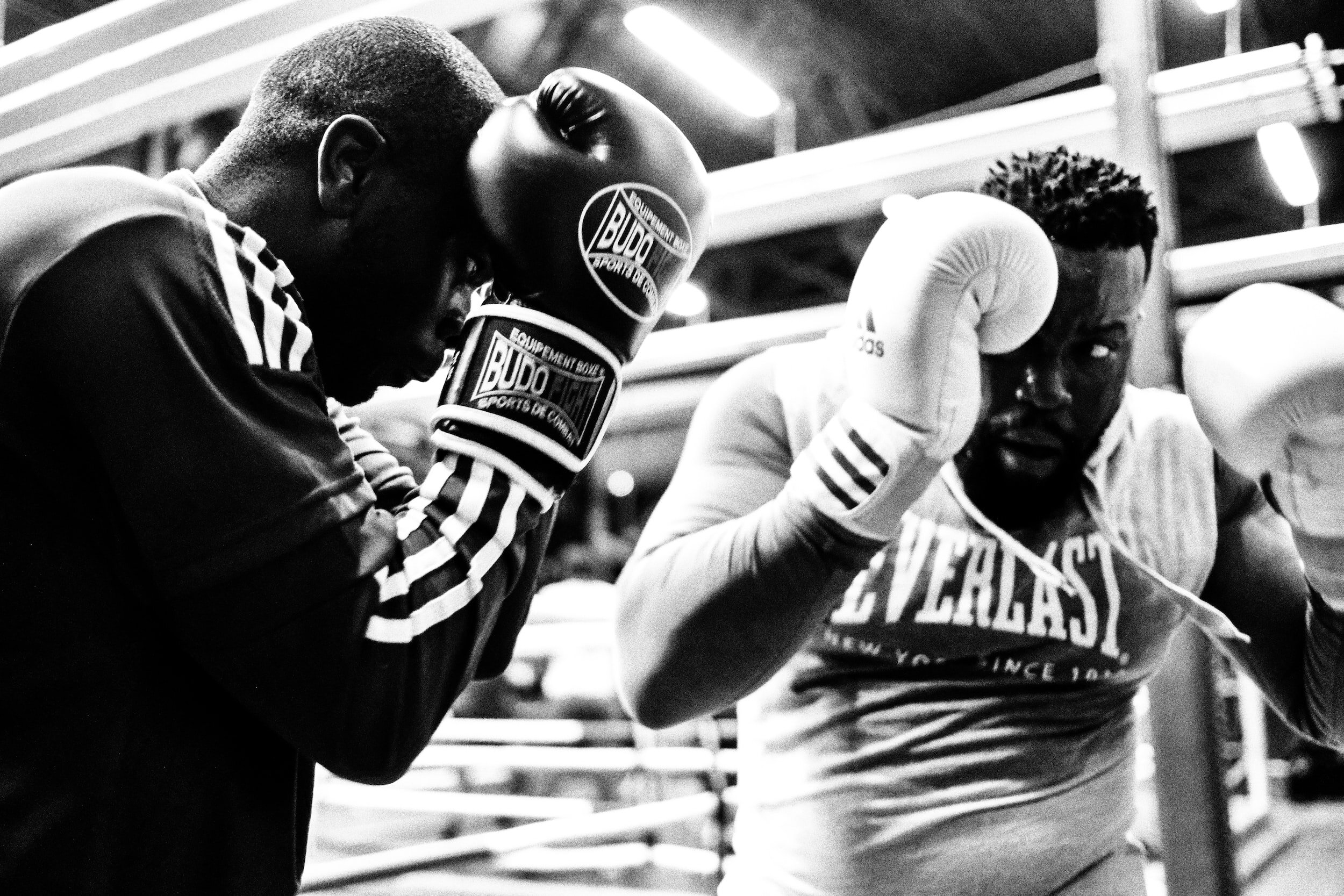Mental Health Performance - How To Build Mental Toughness As An Athlete: A Guide For Athletes Of All Levels
About the Author
Ben Foodman is a licensed psychotherapist & performance specialist. He owns his private practice located in Charlotte North Carolina where he specializes in working with athletes to help them overcome mental blocks (the yips), PTSD, ADD / ADHD and achieve flow states through the techniques of Brainspotting & Neurofeedback. If you are interested in services, use the link here! Enjoy the article below!
Introduction: The Truth About Athletes & Mental Toughness
Within the field of sport performance, there is a popular term that coaches, athletes & sport psychologists love to use: mental toughness. Some sport psychologists have defined mental toughness as the ability to stand tall in the face of adversity. Possessing this skill would obviously yield relevant benefits within sports which has caused many researchers within the field of applied sport psychology to spend an extensive amount of time studying the psychological traits that are associated with mental toughness. But in my experience working with successful professional and Olympic athletes, I believe that mental toughness means something completely different from the industry standard definition.
Traditional sport psychologists and coaches will often cite how mental toughness gives athletes the ability to control their emotions. But I believe that ‘controlling one’s emotions’ has been widely misinterpreted to mean ‘suppress one’s emotions’. I believe this perception has lead to unnecessary psychological stress for athletes, and has created barriers that prevent individuals from achieving true peak performance outcomes. For this Training Report I want to spend some time redefining what I believe mental toughness should actually be. I will then go into the scientific justification for redefining mental toughness and provide different strategies athletes can use to acquire this skill. Let’s start by reimagining what the definition of mental toughness is.
Part I. Athletes Exploring Emotions Is Mental Toughness
One of the biggest problems that athletes face is being unable to recognize that experiences within sports can actually be considered traumatic events. Prominent experts within the field of neuroscience and sport psychology such as Dr. David Grand have written extensively about why this issue is relevant for athletes. There is also the stigma within the field of sport psychology about how mental performance and mental health are separate issues. The truth is that mental health is mental performance, and that by directly addressing these issues athletes are actually moving closer towards achieving their truly athletic potential. We even know through extensive research that individuals who seek mental health treatment from qualified individuals have better healthcare outcomes compared to those that don’t. But let’s dive deeper into the connection between mental toughness and mental health.
When athletes are exploring their mental health, they are by extension exploring their emotions. Emotions can be defined as physiological sensations that occur in the presence of a memory, thought or idea. When we experience negative emotions such as depression, stress or anxiety, these can be uncomfortable experiences. I like to think about this in terms of suddenly finding yourself in a pitch black room that you have never been in. You may not know if the ceiling is 500 miles above you, or if the exit door is 20 feet to your right. You have two choices to get out of the room: you can run in a random direction and hope you don’t hurt yourself on the way out, or you can slowly feel your way around the room and create a mental map of that space. By creating a mental map of that space, you will gain a better understanding of the area. This can be a powerful experience and falls within the action of ‘becoming comfortable in discomfort’. In my opinion, this is the definition of mental toughness.
Part II. The Neuroscience Behind Athletes & Mental Toughness
When athletes experience emotions that negatively impact sport performance outcomes, these usually come in the form of mental blocks (AKA the Yips). Let’s take anxiety as an example. Anxiety can create the sensations of muscle tension, body temperature changes, nausea, ‘wobbly’ body sensations, or just overall lack of control of one’s body. Neuroscience research seems to suggest that the vast majority of psychological issues such as anxiety are not problems due to ‘lack of understanding’ but rather behaviors that are a result from pressure emanating from the deeper regions of the brain.
Athletes that spend time working with professionals to address these issues in the appropriate fashion (e.g. working with sport psychologists, licensed psychotherapists or psychiatrists) can significantly reduce or eliminate these body sensations such as anxiety, and experience the body sensations associated with positive homeostasis (e.g. relaxation). So now that we have a better understanding of the science behind this concept, what are some things athletes can do to enhance their mental toughness and win on the field of competition?
Part III. Mental Toughness Strategies For Athletes
Fortunately for athletes, there are multiple resources available that can help them improve in this area of their persona life which will translate to their sport competition life. Keep in mind, exploring one’s emotions can be painful and very difficult, but this process is the very definition of mental toughness and will not only benefit athletes in their sports performances, but more importantly in their personal life. Let’s take a look at some examples of strategies that athletes can employ.
Work with a qualified mental health therapist
Regardless of the therapeutic technique that is used, the most important aspect of working with a therapist is collaborating with someone you trust that has great listening skills. If you can develop a connection with someone like this, you can have great outcomes with this type of therapeutic relationship. Shop around, see what works for you and what doesn’t.
Brainspotting
Brainspotting is one of the most cutting edge therapies available and is making a big splash in the world of sports performance. I have written extensively about Brainspotting in previous Training Reports, but this approach offers an efficient way to help athletes bypass the areas of the brain that are not relevant towards the creation of dysregulation behaviors (e.g. anxiety) and accessing the areas of the brain that are.
Neurofeedback
Neurofeedback is another therapy approach that is gaining steam within the world of sport psychology. This neuroscience based intervention can help athletes identify brainwave patterns and train the areas of the brain to produce a more efficient brainwave activity, which can be associated with certain mental states such as increased focus, increased energy and improvement with impulse control.
Regularly processing and exploring negative emotions
Controlling one’s emotions over the years has usually meant that we should ‘block’ or shove down our emotions when we are performing in sports. Athletes may be able to temporarily block emotions but they will never go away until they are truly processed. Instead of spending time trying to block emotions, be curious about them and allow your emotions to go in the direction that they will go.
Separating identity from sport
Many athletes do not have great boundaries between their identity and sports. For instance an athlete might see themselves as Joe or Jane the athlete, rather than Joe or Jane who HAPPENS to be an athlete. If athletes do not have a good boundary between their identity and their sport, they may see their failure in sport as a failure in their identity. Athletes should find meaning in activities outside of sport and regularly engage in them.
Note To Reader:
If you are an athlete reading this segment of the TRAINING REPORT, hopefully this content was helpful! I put the Training Report together because I felt like many of the discussions on issues such as the Yips/mental blocks, strength training & other subject matter on athlete performance concepts were really missing the mark on these ideas (e.g. how trauma is the direct cause of the Yips). If you are interested in learning more, make sure to subscribe below for when I put out new content on issues related to sport psychology & athlete performance! Also, if you are looking to work with a mental performance specialist, you are in the right place! USE THIS LINK to reach out to me to see if my services are the right fit for your goals!
ARE YOU ON THE LIST?
Make sure you’re signed up to Ben’s mailing list to receive news & updates on new strategies in sport psychology, upcoming workshops & products. Don’t wait, sign up now!

































